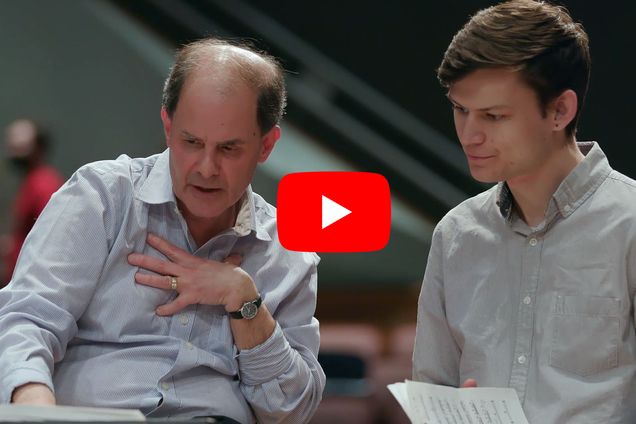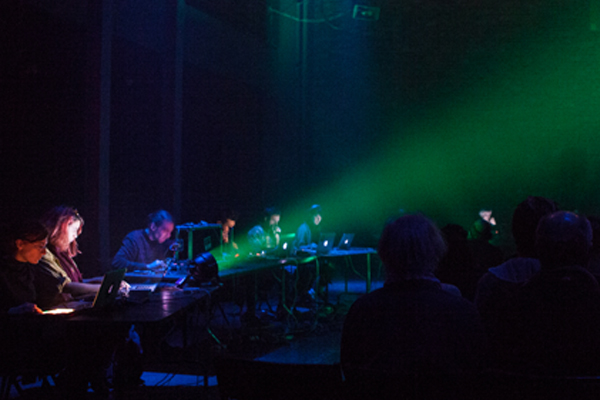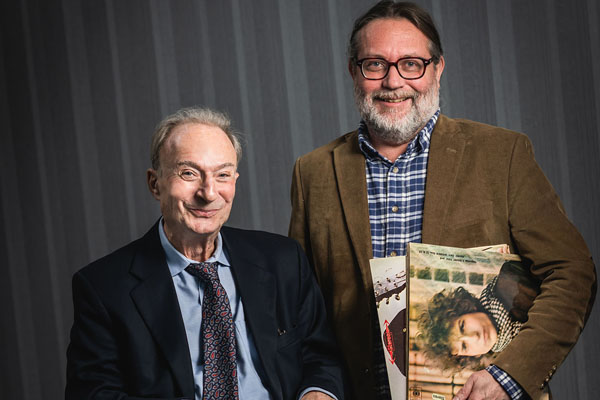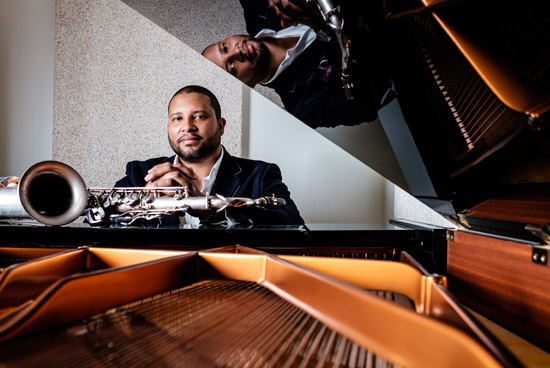
Jeremy Yudkin
Professor of Music; Co-Director of the Center for Beethoven Studies
Jeremy Yudkin is Professor of Music, Co-Director of the Center for Beethoven Research, Associated Faculty of the Department of African American Studies, Associated Faculty of the Elie Wiesel Center of Jewish Studies, and former chair of the Department of Musicology and Ethnomusicology at Boston University; and former Visiting Professor of Music at Oxford University. He has also taught as Visiting Professor at Harvard University and Professeur Invité at the Ecole Normale Supérieure and the Conservatoire National Supérieur de Musique in Paris, France. Dr. Yudkin received his BA and MA in Classics and Modern Languages from Cambridge University in England and his PhD in Historical Musicology from Stanford University. He is the recipient of a Fellowship from the National Endowment for the Humanities, a Marion and Jasper Whiting Foundation Fellowship, a Class of 1960 Visiting Scholar at Williams College, a Senior Fellowship at the Boston University Humanities Foundation, and a Research Fellowship from the Camargo Foundation. He is the author of eleven books and has written several book chapters and articles for many journals.
Professor Yudkin’s principal fields of research include medieval music, Beethoven, popular music, and jazz. He has taught classes on medieval polyphony, the Beatles, Beethoven, Bartok, and Miles Davis, among many others. He has been nominated six times for Boston University’s highest teaching award and was chosen as the University Lecturer in 2010. Jeremy Yudkin is perhaps best known in the field for his definitive textbook Music in Medieval Europe and his highly successful music appreciation textbook Understanding Music, which is used by approximately twenty thousand students across North America every year. The video that he produced, Inside the Orchestra, detailing the history and function of the classical symphony orchestra, was the winner of a 2005 Telly Award for outstanding non-broadcast educational video. He is also the author of several other books on medieval and Renaissance music, Beethoven, and jazz. His book Miles Davis, Miles Smiles, and the Invention of Post-Bop (2009) won an Award for Excellence in Historical Sound Research from the Association for Recorded Sound Collections. His book From Silence to Sound: Beethoven’s Beginnings was nominated as a 2021 Outstanding Reference Book of the Year by the American Library Association.
Professor Yudkin is a contributor to The Harvard Dictionary of Music; Musicians and Composers of the Twentieth Century; and A Companion to the Modern American Novel, 1900-1950. He is currently engaged in two book projects, one on the Beatles and another on jazz in the 1950s. He served as an advisor to the Smithsonian Institution for the Smithsonian Collection of Classic Jazz and is a consultant on jazz to the Oxford English Dictionary. He is a Cultural Partner and Distinguished Speaker for the Osher Lifelong Learning Institute and founder and host of the Lenox Library Association’s Distinguished Lecture Series. He is the pre-concert lecturer for the Boston Symphony Orchestra’s annual Tanglewood Festival every summer and has lectured across the United States and in England, France, Israel, and Russia.
PUBLICATIONS
Books
- 1959: The Greatest Year in Jazz. [In preparation.]
- From Silence to Sound: Beethoven’s Beginnings. Woodbridge, UK: Boydell and Brewer, 2020. (446 pp., 9 black and white, 118 line illustrations.)
- [As editor] The New Beethoven: Evolution, Analysis, Interpretation. New York: University of Rochester Press, 2020. [572 pp., 94 black and white, 104 line illustrations.)
- [Pamphlet] Not a Note Too Many, Not a Second Too Long: Beethoven, Miles, and McCartney. University Lecture, Boston University. Boston: Trustees of Boston University, 2010. (22 pp.)
- [As editor] Value and Judgment in Medieval Music, 4th-14th Centuries. Boston, Massachusetts: Boston University School of Music, 2009. (141 pp.)
- Miles Davis, Miles Smiles, and the Invention of Post Bop. Bloomington: Indiana University Press, 2008. (179 pp., 23 musical transcriptions.) [Winner of Award for Excellence in Historical Recorded Sound Research, 2009.]
- The Lenox School of Jazz: A Vital Chapter in the History of American Music and Race Relations. (160 pp., 40 black and white photos.) Lenox, Massachusetts: Farshaw, 2006.
- [Chinese translation of Music in Medieval Europe. Beijing, China: The Central Conservatory of Music, 2006.]
- Discover Music. Upper Saddle River: Prentice Hall, 2004. (350 pp., 100 illustrations, 4 compact disks.)
- Understanding Music. Upper Saddle River: Prentice Hall, 1996. (A music appreciation textbook; 500 pp., 300 illustrations, 7 compact disks, CD-ROM.) (New editions: 1999, 2002, 2005, 2008, 2010, 2012, 2014, 2016.)
- De musica mensurata: The Anonymous of St. Emmeram. Complete Critical Edition, Translation, and Commentary. Music: Scholarship and Performance series. Thomas Binkley, general editor. Bloomington: Indiana University Press, 1990. (385 pp.)
- Music in Medieval Europe. Prentice Hall History of Music Series. H. Wiley Hitchcock, general editor. Englewood Cliffs, New Jersey: Prentice Hall, 1989. (612 pp., 149 musical examples, 59 illustrations, 6 maps, 2 cassette tapes.)
- The Music Treatise of Anonymous IV: A New Translation. Musicological Studies and Documents, volume 41. Neuhausen-Stuttgart: American Institute of Musicology, 1985. (82 pp.)
- Johannes Thomas Freig (1543-1583): ‘Paedagogus’ – The Chapter on Music. Musicological Studies and Documents, volume 38. Neuhausen-Stuttgart: American Institute of Musicology, 1983. (94 pp.)
Video
- Inside the Orchestra. (A 60-minute video in three parts explaining orchestral instruments, how an orchestra works, and the development of the orchestra from the 18th to the 20th century.) Upper Saddle River, New Jersey: Prentice Hall, 2005. [Winner of Telly Award for Outstanding Non-Broadcast Educational Video, 2005.]
Articles
- “Anonymus IV.” Lexikon: Schriften über Musik. Ed. Ullrich Scheideler and Felix Wörner. Musikwissenschaftliches Institut der Universität Basel. Kassel: Bärenreiter, 2017.
- “The Thirteenth-Century Copula: Progress of an Idea.” In Analizar, Interpretar, Hacer Música: De las Cantigas de Santa Maria a la organología. Pp. 233-70. Ed. Melanie Plesch. Buenos Aires: Gourmet Musical, 2013.
- “Miles Davis’s Kind of Blue.” OUPBlog: Oxford University Press’s Academic Insights for the Thinking World. August 17, 2014.
- “The Naming of Names: ‘Flamenco Sketches’ or ‘All Blues’? Identifying the Last Two Tracks on Miles Davis’s Classic Album Kind of Blue.” The Musical Quarterly 95 (2012): 15-35.
- “Modernism and the Other Arts II: Musical Culture.” In A Companion to the Modern American Novel. Ed. John T. Matthews. Oxford: Blackwell, 2009.
- “Miles Davis.” 2,000-word entry on life and works for Musicians and Composers of the Twentieth Century. Pasadena, California: Salem Press, 2009.
- “Chasin’ the Truth: The Lost Historiography of American Vernacular Music.” American Music 26 (2008): 398-409.
- “Passion Play.” Berkshire Living, July 2008, 50-53.
- “‘Jazz-Shaped’: Literary and Amateur Contributions to the Story of Jazz in America.” Unpublished, 2008.
- “Avoiding the Music: Jazz, Sociopolitics, and the American Academy.” Unpublished, 2008
- “The Enduring Ludwig: What Is It about Beethoven that Keeps Audiences Coming back for More?” Berkshire Living, July 2007, 57-61.
- Contributor to The Harvard Dictionary of Music, fourth edition (Cambridge, Massachusetts: Harvard University Press, 2003).
- “Ut hic: A Study of the Musical Examples Cited or Quoted in the Five Principal Music Treatises of the Thirteenth Century.” In From Rome to the Passing of the Gothic: Western Chant Repertoires and Their Influence on Early Polyphony. Isham Library Papers, volume 4. Cambridge, Mass.: Harvard University Press, 1995.
- “Beethoven’s ‘Mozart’ Quartet.” Journal of the American Musicological Society XLV (1992): 30-74.
- “A la recherche d’un théoricien du treizième siècle à Paris.” In Aspects de la musique liturgique au moyen âge. Ed. Michel Huglo and Marcel Pérès. Pp. 202-217. Paris: Editions Créaphis, 1991.
- “The Anonymous Music Treatise of 1279: Why St. Emmeram?” Music and Letters LXXII (1991): 177-196.
- “The Influence of Aristotle on French University Music Texts.” In Music Theory and Its Sources: Antiquity and the Middle Ages. Notre Dame Conferences in Medieval Studies, volume 1. Ed. André Barbera. Notre Dame, Indiana: University of Notre Dame Press, 1990.
- “The Anonymous of St. Emmeram and Anonymous IV on the Copula.” The Musical Quarterly LXX (1984): 1-22.
- “The Rhythm of Organum Purum.” The Journal of Musicology II (1983): 355-376.
- “The Ballate of the Decameron in the Musical Context of the Trecento.” Stanford Italian Review II (1981): 49-58.
- “The Copula According to Johannes de Garlandia.” Musica Disciplina XXXIV (1980): 67-8.
Reviews
- Review of Keith Waters, The Studio Recordings of the Miles Davis Quintet, 1965-68. Oxford Studies in Recorded Jazz. New York: Oxford University Press, 2012. American Music 30 (2012): 527-30.
- Review of “Sidney Bechet: Treat It Gentle.” DVD by Anthony Wall. Yearbook for Traditional Music 42 (2010): 237-38.
- “Riches of Organum.” Early Music 33 (2005): 708-10.
- Review of Hendrik van der Werf, Integrated Directory of Organa, Clausulae, and Motets. Rochester, New York: The Author, 1989. Notes: The Quarterly Journal of the Music Library Association XLVII (March, 1991): 731.
- Review of John Stevens, Words and Music in the Middle Ages: Song, Narrative, Dance and Drama, 1050-1350. Cambridge, England: Cambridge University Press, 1986. Speculum: A Journal of Medieval Studies LXIV (1989): 765-769.
- Review of Hendrik van der Werf, The Extant Troubadour Melodies: Transcriptions and Essays for Performers and Scholars. Rochester, New York: The Author, 1984. Speculum: A Journal of Medieval Studies LXII (1987): 744-746.
- Review of Mario Pintacuda, Interpretazioni musicali sul teatro di Aristofane. Palermo: Palumbo, 1982. The American Journal of Philology CIV (1983): 302-303.







